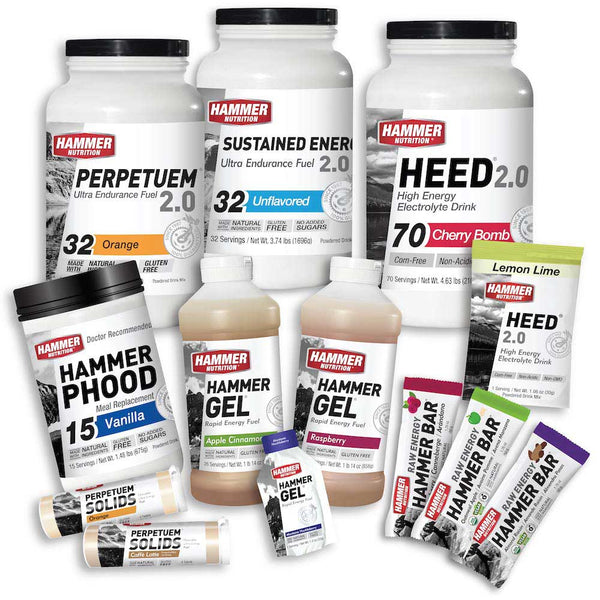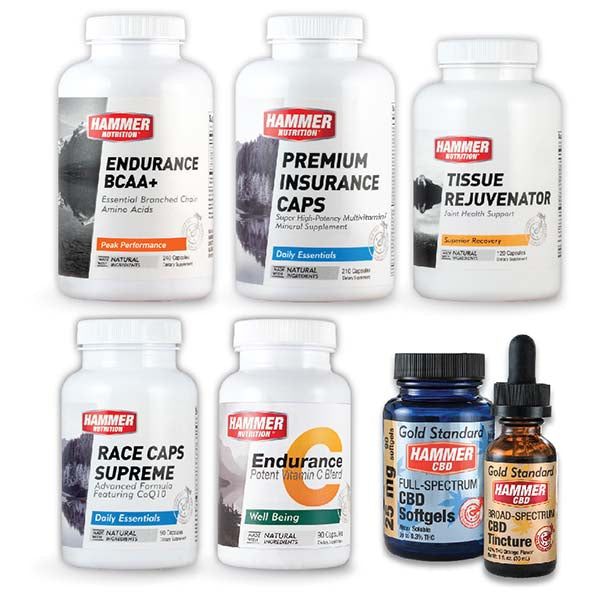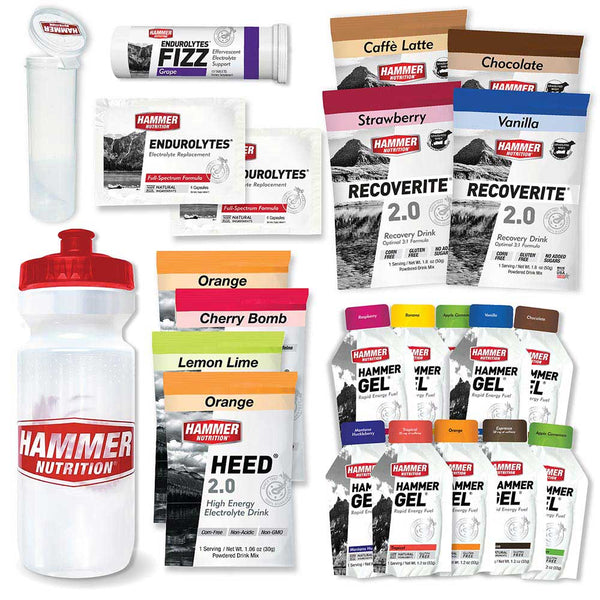
BY DR. BAYNE FRENCH MD DC
When Chris Kresser writes an article titled How Industrial Seed Oils Are Making Us Sick (Feb 2019), I read it. Chris is the real deal and a Functional Medicine practitioner. I like this dude. In his article and in many others, the process of obtaining fat from seeds is detailed. It's all very complicated for a mountain person like me to understand, but it involves multiple steps of high heat, solvents, deodorizing, and chemical additives. None of which sounds favorable for our cellular machinery. And you are all amazing machines.
The result of kicking the crap out of seeds is an oil. A fat. Considered by many to be "heart-healthy." But are they? Ooo, suspense. I hear suspenseful music right now. Seriously, my kid is watching Chariots of Fire. The Big Fat Surprise by Nina Teicholz documents all the steps involved in how seed oils became designated as "heart healthy." It's fascinating and unfortunate.
Wanna do something fun? Just google "Are seed oils bad?" Like most things human, the myriad results are extremely polarized. And thus we are left to make determinations for ourselves. Crap. You might be thinking, "l just want someone smart to tell me what to do!" Well, in the absence of someone smart, I'll tell you...avoid seed oils.
But why? The organization bestowed with the health of our pumping organ, the American Heart Association considers seed oils Heart-Healthy. My God, what chance do we have? Rhetorical question. That means a question asked to make a point and not to get an actual answer. Sorry, that's mansplaining. Can we just please get to a perilous journey we took together through the world of Essential Omega Fats many months ago? I encourage you to review this scary experience for a basic understanding of fats in general.
There are three main types of fats: saturated, monounsaturated, and polyunsaturated. Most foods that contain fat have a mixture of these fats but are categorized by the type of fat that predominates. As an example, butter is considered a saturated fat but is also 30% monounsaturated and 5% polyunsaturated fats. Wild game meat fat, as determined by the University of Wyoming, is 45% saturated, 30% monounsaturated, and 25% polyunsaturated.
We're going to focus on polyunsaturated fats. There are two main types: OMEGA 6 (06) and OMEGA 3 (03). These two fats are chemically very similar but drive dramatically different processes in the body. They are termed "essential" because we must eat them. Sources include oils, nuts, seeds, algae, and animals.
Consumed 06 and 03 fats need to be converted to different compounds in our bodies. These converted forms are what exert biological actions. For instance, most eaten 03 does not help us. It must be converted to EPA and DHA. We each possess major differences in our ability to make this conversion. This has led some authorities to consider EPA and DHA also essential. They are only found in animals, and algae.
Essential fats have been studied A LOT. There are heaps of pre-clinical data on the biological actions of these fats. Pre-clinical basically means animal studies, rodents primarily. I may be the only one in Montana that routinely eats Columbian Ground squirrels. They steal so much of my organic duck feed they're like the size of cats. Sorry not sorry to you animal lovers but there is good news for you. In silico computer, modeling may replace the use of rodents in some pre-clinical study situations. I digress. Again. The rodent studies over decades are consistent on the detriments of 06 fats and the benefits of 03 fats. Clinical (human) studies, however, are far more inconsistent. In Essential Omega Fats, I outline 10 reasons for this inconsistency. Spoiler alert...#10 is "blah blah blah".
Mentioned previously was that most foods are a mixture of fats. Our native foods, meaning what we ate as hunter-gatherers, also had mixtures of fats. Here's what I consider a key point to understand...these foods, which drove the development of our biochemistry and metabolism, had much lower 06 and much higher 03 fats than what we eat today. Many authors, clinicians, and researchers have described the concept of a "mismatch" between our genes and our modern environment, and hypothesize this as being elemental in the development of disease.
Here are some key points to understand about polyunsaturated fats and seed oils:
- In most consumed food, there is way more 06 than 03. Even an egg has a 06 to 03 ratio of about 17 to 1. Canola oil (discussed later), widely promoted for its high 03 content, is 3 to 1 in favor of 06. An excerpt from Essential Omega Fats: "Given the ubiquity and low cost of 06 fats, their delicious nature with deep fried foods, and they being widely touted as "heart healthy", we are certainly not suffering from an 06 deficiency".
- Fish and other animals that ate their native foods (i.e. wild game, grass-fed cows, wild-caught fish, omnivoric chickens and their eggs, etc.) have a much more favorable 06 to 03 ratio. And better yet, possess the biologically active EPA and DHA forms of polyunsaturated fat.
- The process of extracting fat from seeds on a large scale requires many steps. These steps primarily underlie why seed oils are unhealthy. High temperatures, the use of hexane and other solvents, and further refinement like bleaching and degumming damage these delicate fats, which really stinks. I mean, they literally stink and thus need to be deodorized. Canola is healthy, in theory. It has a relatively higher amount of 03 fats. It's just likely damaged before you eat it. And in restaurants, subjected to high heat over and over, canola and other seed oils are particularly unhealthy.
- Damaged 06 fats mean they're oxidized. Refer to my previous article on oxidation for an explanation of this process. OXLAMS specifically refers to damaged 06 fats. These compounds are extremely inflammatory and promote disease in many ways.
- 06 fats drive the formation of inflammatory compounds. We needed these compounds, in small amounts, anthropologically, but is excessive with our modern diet.
- 03 fats drive the formation of anti-inflammatory compounds. We definitely need this, more now than ever.
Action items:
- Toss from your home the 3 S's and 3 C's: Soy, Sun, Safflower, Canola, Corn, and Cottonseed.
- Minimize processed and prepared foods.
- Minimize dining out.
- Minimize consuming animals that did not eat their native foods. Their meat has much higher amounts of 06 fats and possibly toxic metabolites of the seed oils they consumed.
- Cook with Extra Virgin olive oil, avocado oil, coconut oil, butter, ghee, lard, or tallow.
With the understanding that there are no large-scale, compelling human studies showing the detriments of modern seed oils, understanding basics of their actions and just how far they've deviated from our natural consumed fats may lend credence to advice to minimize their consumption.
I feel that avoiding processed seed oils and supplementing with 03 fats (fish oil) is right up there with fasting in the morning, minimizing carbs, and being in good cardiopulmonary conditioning as powerful modulators of health and longevity.









15 comments
You responded above that walnut oil has the highest omega 6 concentration and almond the lowest. Do you mean of those two? Because walnut oil has a O6 to O3 ratio of 5:1 and almond oil is not a source of O3. By comparison safflower oil has a ratio of 133:1 and grapeseed 676:1. Both avocado oil and olive oil have a ration of 13:1. So I say bring on the walnut oil if you can find a way to use it. I usually just stick with coconut oil and olive oil. In general, I think of seed oils like safflower and sunflower seed oil as poison. Thank you for helping to educate people about the health dangers of cheap seed oils.
———
Hammer Nutrition replied:
Thanks for your comment and information, Jane. While I did not compose the original response, I believe the writer was referring to whole walnuts and almonds. The chart at https://www.ncbi.nlm.nih.gov/pmc/articles/PMC8504498/ shows that 1 ounce of walnuts contain 10.8 grams of omega-6 per serving, while 1 ounce of almonds contain 3.4 grams of omega-6 per serving. However, the ratio of O-6 to O-3 favors walnuts (4:1) over almonds (~2000:1). As you know, whole food sources contain other important nutrients and compounds as compared to processed oils, so eating whole, raw walnuts—as well as other raw nuts and seeds—should be considered a healthy dietary practice. Walnut oil does have a reasonable 4.2:1 ratio of O-6 to O-3, while (as you pointed out) almond oil is not a source of O-3. Walnut oil has a low smoke point (~225F), so if it is to be used at all, it should be used sparingly and for low heat cooking only. Though almond oil has a higher smoke point, there are other oils—as you mentioned in your comment—that are much better options than either walnut oil or almond oil.
Thank you for the article. I have read the Big Fat Surprise.
Two questions, really.
1). What is the significance of Omega-9 oils in the diet?
2). Knowing how seed oils are processed, are there any cold pressed seed oils that could be considered healthy?
Thank you.
Gregory Behie
———
Hammer Nutrition replied:
Thank you for the feedback on the article, Gregory, and for the excellent questions you ask. Unlike omega-3 fatty acids and omega-6 fatty acids, omega-9 fatty acids can be made in the body, making them nonessential fatty acids, meaning you don’t need to obtain them through food. You can still consume omega-9’s from food, of course—olive oil is an excellent source, as are whole nuts such as almonds, cashews, and walnuts. Cold-pressed oils are extracted by crushing the seeds slowly, while refined oils are typically made by heating and using chemical solvents. In that sense, yes, a cold-pressed canola oil product (for example) is better than a refined canola oil product. Keep in mind, though, that one of the major goals of reducing seed oil intake is to reduce overall omega-6 intake, while increasing omega-3, so it’s best to stick with extra virgin olive oil.
Why would the American Heart Association say these oil are healthy? Can you explain their reasoning?
———
Hammer Nutrition replied:
Hi Lester. Thanks for writing in. Dr. French discusses his position on the AHA stance in Part One of his 3-part series, “Essential Omega Fats: An Essentially Confusing Subject.” You’ll find this at https://hammernutrition.com/blogs/endurance-news-weekly/essential-omega-fats-an-essentially-confusing-subject. In Part 3 (https://hammernutrition.com/blogs/endurance-news-weekly/essential-omega-fats-an-essentially-confusing-subject-part-3), he writes, “I find futile the reliance on governmental nutritional guidelines, advisory councils, or the food industry. They care not at all about your health and well-being. If they did cancer, diabetes, obesity and cardiovascular disease would not be rampant. It is up to you and only you to understand these basic principles of wellness and enact a plan for yourself. Predators be damned.”
What about flax seed oil? Whole Foods, Barlean’s and probably others sell raw, cold pressed, unrefined, filtered or unfiltered, FSO, that is 60+% Omega 3 per their labels.
What about sesame seed oil that has almost equal amounts of omega 3 and 6 per online documentation? It’s so delicious to cook with!
Are “cold pressed”, “expeller pressed”, “unrefined” really better processes for extracting oils than the complex industrial process you described?
———
Hammer Nutrition replied:
Hi William. Thanks for your excellent questions. Flaxseed oil is a very healthy oil, with several health benefits attached to its consumption. One small drawback with flaxseed oil supplements is that while flaxseed oil has an excellent O-3 to O-6 ratio, the O-3’s are in the form of alpha-linolenic acid (ALA) and need to go through a couple of metabolic processes to get to the desired “end products,” which are the essential fatty acids, EPA (eicosapentaenoic acid) and DHA (docosahexaenoic acid). The body is not very efficient at converting ALA into EPA and DHA, which is already preformed and readily available in fish oil. Therefore, given the choice between flaxseed oil supplements and fish oil supplements to get ideal amounts of EPA and DHA, I choose fish oil. That said, flaxseed oil is more flexible in terms of usage; it can easily be swapped for other types of oil in salad dressings and dips, and you can add flaxseed oil to smoothies… and it’ll certainly taste better than fish oil! Flaxseed oil should not be used for cooking at it has a very low smoke point at just 225 degrees F. Cold-pressed and expeller-pressed oils are better processes because of the reduced heat involved and the lack of chemical solvents. (SB)
Great article……. This is a Rabbit trail and may be nothing however…What do you know about the Braggs Apple Cider Co being purchased by Bill Gates and 2 others who plan to use a “non” apple source for the product going forward….the name of the non apple escapes me at the moment, but is considered all trans fat. I apologize for the vage info, but just listened to an interview about it and here you are talking about these fats, can you check into it?
I use this vinegar a lot and if this is a true situation, it is just so very sad. If I can find the podcast again I will forward it to you.
———
Hammer Nutrition replied:
A search of numerous websites reveals that Bill Gates did not buy Bragg and change its apple cider vinegar recipe. One site states, “Bragg made statements on its website and X account confirming that Gates has no relation to the company and the recipe has not changed.” (SB)
———
Hammer Nutrition replied:
Hi Lisa. Thanks for the positive feedback on the article… it’s greatly appreciated! A search of numerous websites reveals that Bill Gates did not buy Bragg and change its apple cider vinegar recipe. One site states, “Bragg made statements on its website and X account confirming that Gates has no relation to the company and the recipe has not changed.” (SB)